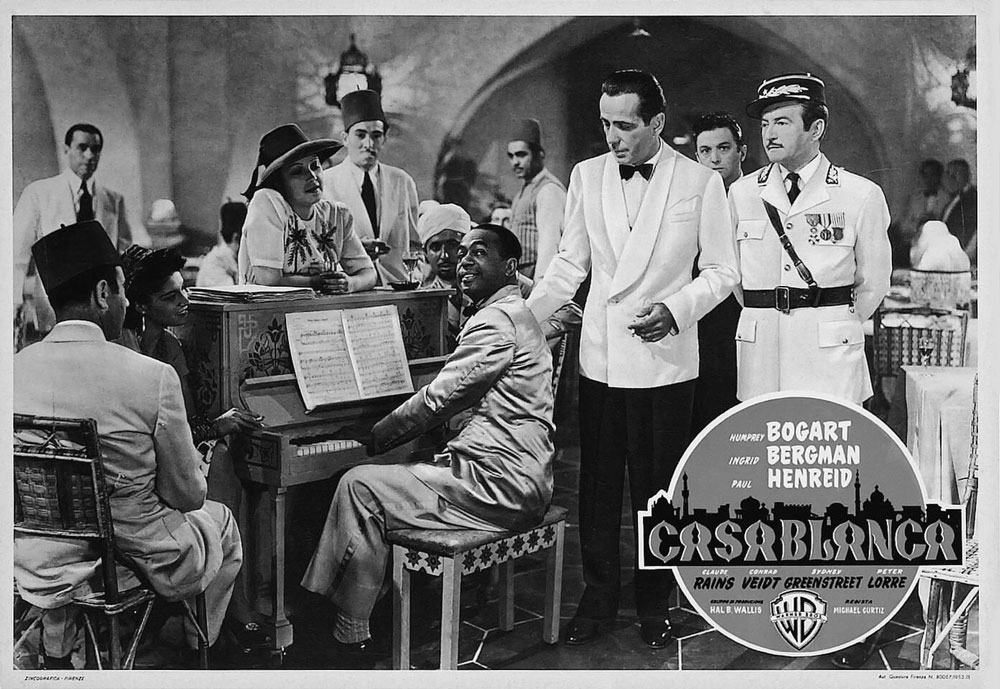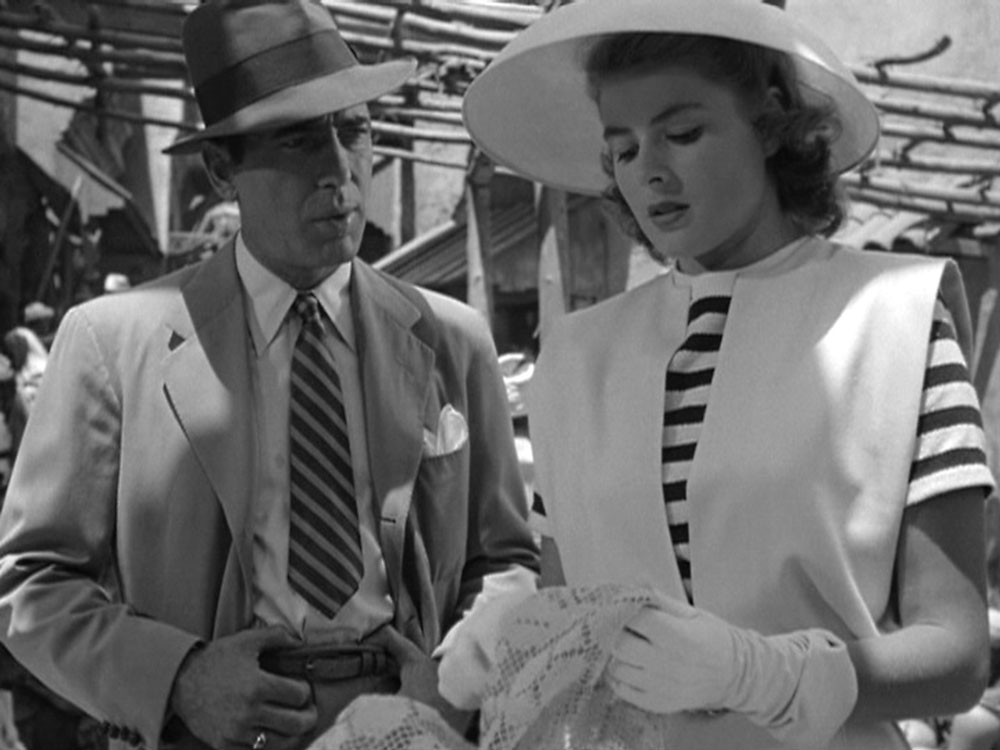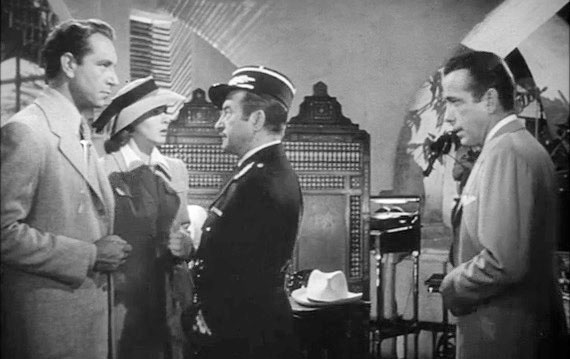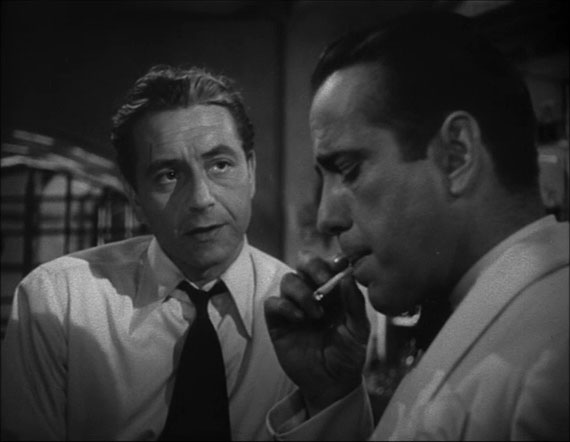Victor Laszlo
Victor Laszlo is a paradox: He is probably the most famous resistance fighter against National Socialism, however, as a product of Hollywood, he is pure invention. In fact, the 1942 movie “Casablanca” created with Victor Laszlo a person which never existed – the transnational leader of the European resistance against Nazism and Fascism. The mythical movie pits Victor Laszlo (played by Paul Henreid), incorporating the idealistic, good side of the world, against three male antipodes: the cynical American saloon owner Rick Blaine (Humphrey Bogart), the opportunistic French police chief Louis Renault (Claude Rains) and the ruthless Nazi investigator Major Strasser (Conrad Veidt). Laszlo, accompanied by his beautiful wife Ilsa Lund (Ingrid Bergman), a former lover of Rick Blaine, winds up in Casablanca on his escape from Nazi persecution. While the Nazis and their French henchmen want to put an end to his flight in Casablanca, only Rick can save him, because he is in the possession of exit visas, which would guarantee Laszlo and Ilsa a safe escape to America. However, Rick is not easily convinced of helping the resistance fighter, who in his mind has taken away from him the greatest love of his life.
Victor Laszlo is presented in the movie as the irreplaceable cornerstone of the whole European resistance movement: He knows and coordinates the leaders of the anti-fascist movements in Paris, in Rome, in Prague, in Oslo, even in Berlin. Once the Nazis catch Victor Laszlo, they will have the key in their hands to break definitively the whole resistance. However, Laszlo is of legendary resilience, because we learn throughout the movie that he has escaped twice from a concentration camp, was nearly dying when retrieved by Ilsa, but succeeded to flee through French North Africa up to Casablanca.
Still, Victor Laszlo is more than a mere organizer and political leader of a movement, he is a moral authority and personifies resistance as an ethical stance. Resistance for him means to pass over the limits of one’s own self, to disregard personal interests and material wealth in order to stand up for universal human values. “If we stopped fighting our enemies, the world will die”, Laszlo points out to Rick. With his uncompromising integrity, he leads the weary casino owner to overcome his aloofness, to assume a moral responsibility, to sacrifice his love for Ilsa, and kill Major Strasser to secure Laszlo’s and Ilsa’s escape from Casablanca. And the joyfully unconcerned police chief Renault changes sides by the same token and abandons collaborationist Vichy France. All citizens who in 1942 are still uninvolved or undecided in the struggle against Nazism and Fascism should, this is the message of the film, follow Laszlo’s example and espouse resistance as a moral attitude.
Matthias Waechter





